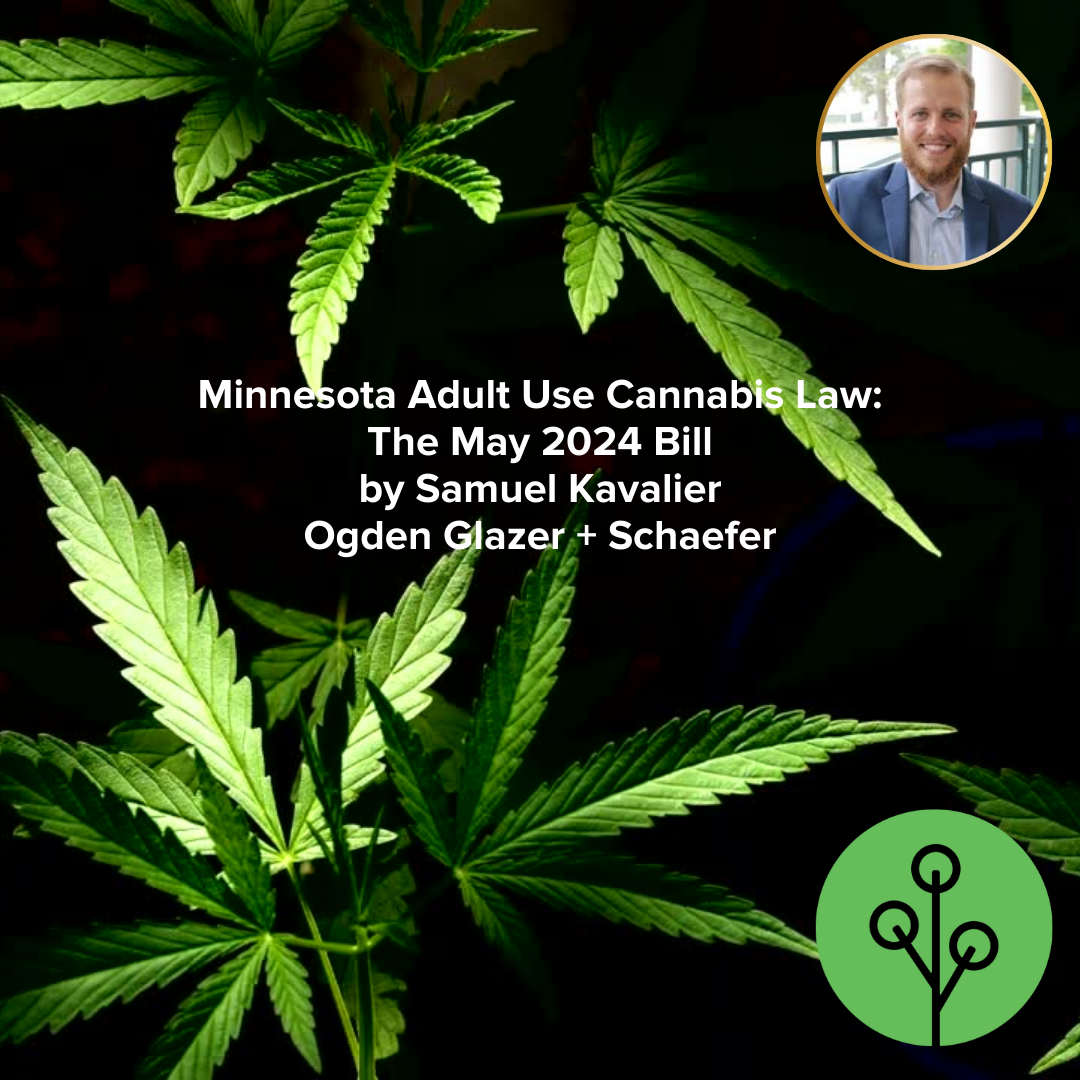Of course the news cycle wouldn’t allow me wrap up on Minnesota’s Adult Use Cannabis Law series at four posts (see the links for Parts 1, 2, 3, and 4)! It needed a fifth part, where I discuss the bill that was signed into law a few weeks ago.
On May 24th, Governor Tim Walz signed HF 4757 into law. The text of the bill is over 180 pages long, so to provide a summary that will fit into a blog post, there are a few major areas of focus in the bill.
The first bucket is Social Equity Applicants. Since the first bill passed last year, Minnesota’s Adult Use Cannabis Law has defined “Social Equity Applicant.” The statutory definition is pretty lengthy, but it essentially qualifies individuals based on characteristics of: (i) prior cannabis-related criminal convictions of themselves or close relatives; (ii) military service; (iii) residence in certain under-resourced or heavily cannabis-enforced communities across the state; or (iv) previous small farm farming experience. The policy of the law is to advantage these applicants, including ones harmed by Minnesota’s previous drug enforcement policies. The issues for Social Equity Applicants in the original bill and how they were addressed in the original bill break down like this:
- The definition of “Social Equity Applicant” was somewhat squishy in the original bill. The new bill makes some of the qualifications more specific and crisper to better determine whether an applicant is a Social Equity Applicant.
- For applicants that are companies – each owner, director, manager, and general partner within the company needed to individually qualify as a Social Equity Applicant for the company to collectively qualify as a Social Equity Applicant under the original law. The new bill simplifies this rule such that as long as 65% of the equity in the company is held by individuals that qualify as Social Equity Applicants, the company is a Social Equity Applicant. This is designed to allow company applicants to seek investment and expertise from a wider variety of sources, rather than just fellow Social Equity Applicants.
- Social Equity Applicants would receive a boost in their license application under the original law, but Social Equity Applicants were otherwise competing with all other license applicants for the same licenses. The new bill addresses this by:
- Creating classes of licenses that are parallel to the existing classes of licenses, while making those parallel classes available exclusively to Social Equity Applicants. Social Equity Applicants are also still eligible to apply for the licenses available to all other applicants.
- Granting OCM the authority to issue “preapproval licenses” to Social Equity Applicants, which essentially allow Social Equity Applicants to enter the market before other kinds of applicants can.
The second bucket is the license approval process. Under the original law, OCM was supposed to essentially score applications, and if there were more applicants than licenses in a given class, the applications with stronger scores were supposed to be awarded licenses. The process also required the applicant to obtain the proper space (own or lease) to operate the licensed business before applying. Under the new bill, if each applicant in a class meets the minimum requirements, the applicants are entered into a lottery, and the licenses are awarded to the applicants randomly selected in the lottery. Applicants also do not need to obtain space for operations before applying.
The third bucket is government agency restructuring. Cannabis regulation is currently spread between OCM, the Office of Medical Cannabis, and the Board of Pharmacy. The goal was to eventually bring all the regulations under OCM, but the new law accelerated that timeline from 2025 to July 1, 2024.
Now that the new bill has passed, the ball is in OCM’s court to make additional rules in response to the new bill, so I am going to go ahead and predict now that there will be a Part 6 yet to come. In the meantime, thanks for reading!

